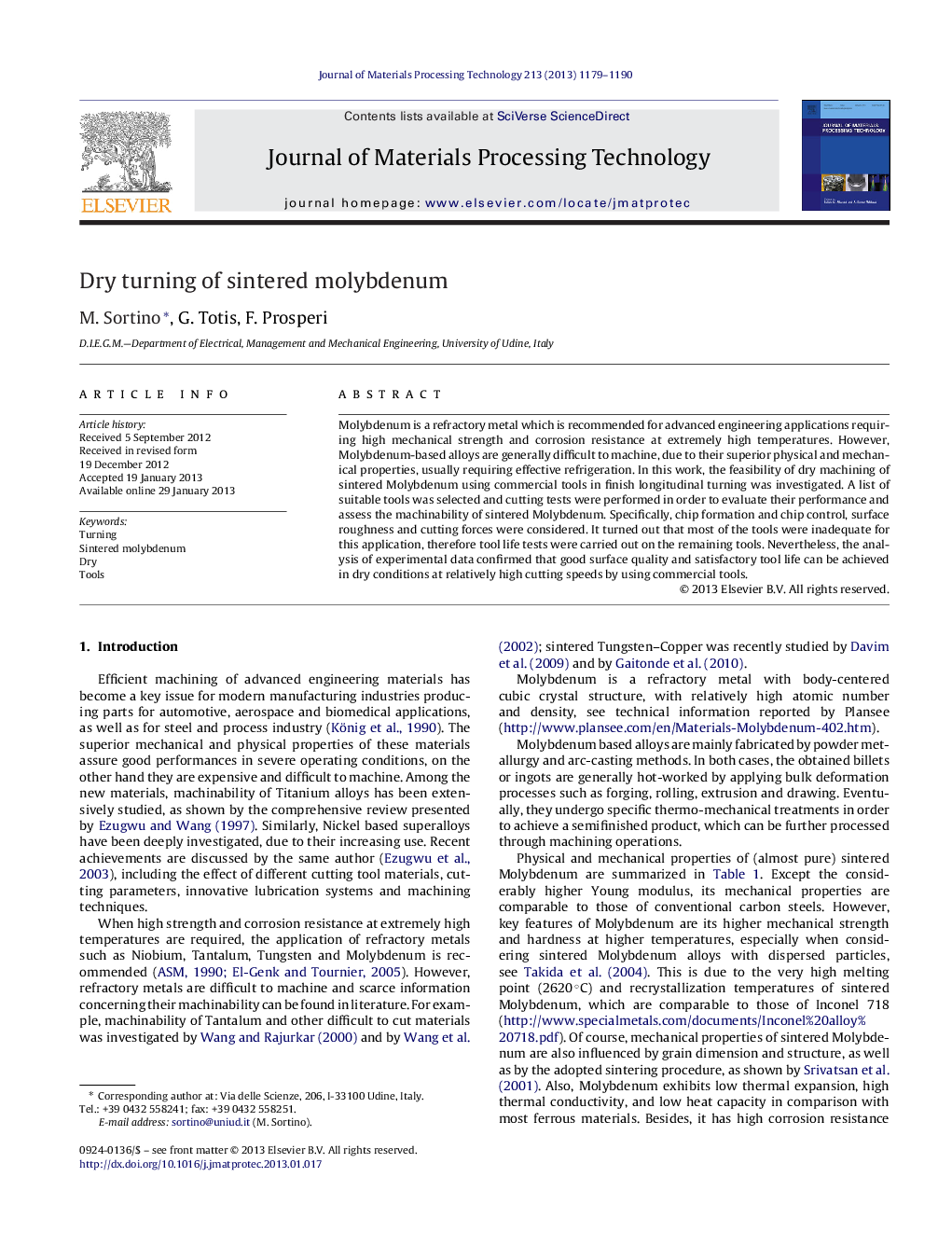| Article ID | Journal | Published Year | Pages | File Type |
|---|---|---|---|---|
| 795886 | Journal of Materials Processing Technology | 2013 | 12 Pages |
Molybdenum is a refractory metal which is recommended for advanced engineering applications requiring high mechanical strength and corrosion resistance at extremely high temperatures. However, Molybdenum-based alloys are generally difficult to machine, due to their superior physical and mechanical properties, usually requiring effective refrigeration. In this work, the feasibility of dry machining of sintered Molybdenum using commercial tools in finish longitudinal turning was investigated. A list of suitable tools was selected and cutting tests were performed in order to evaluate their performance and assess the machinability of sintered Molybdenum. Specifically, chip formation and chip control, surface roughness and cutting forces were considered. It turned out that most of the tools were inadequate for this application, therefore tool life tests were carried out on the remaining tools. Nevertheless, the analysis of experimental data confirmed that good surface quality and satisfactory tool life can be achieved in dry conditions at relatively high cutting speeds by using commercial tools.
► There are benefits in dry turning sintered Molybdenum at cutting speed >150 m/min. ► Surface roughness linearly decreased as cutting speed was increased. ► Chip flow stress τs of sintered Molybdenum was similar to carbon steel. ► Oxidation and abrasion were the dominant tool wear mechanism. ► It is possible to achieve tool life >20 min in dry cutting condition at high speed.
